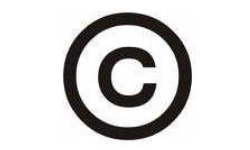*Originally posted on December 17, 2020

In addition to an award of statutory damages, the ability to obtain attorney’s fees is often touted as an advantage of registering a copyright. Indeed, it is a strong incentive for some lawyers to take copyright infringement cases on a contingency basis. What’s not often discussed is that should plaintiff’s attorney fail on behalf of his or her client, the tables may turn and plaintiff herself may be found liable for attorney’s fees. Let’s see how that plays out in real life.
In 2018, jazz musician Paul Batiste sued the well-known and award-winning hip-hop duo, Ryan Lewis and Ben Haggerty(collectively, Macklemore) in the Federal Court for the Eastern District of Louisiana, for copyright infringement (Paul Batiste v. Ryan Lewis, Ben Haggerty, et al). He claimed that Macklemore had digitally sampled parts of Batiste’s works and incorporated them into their own music without Batiste’s permission.
It was not a great session for Batiste. In addition to various proof and evidentiary problems, at the close of discovery, the defendants moved to exclude the report of Batiste’s expert musicologists because his deposition revealed that the report was actually written by Batiste himself. The court threw out the report despite a supplemental declaration in which Batiste restyled the report as his own. Defendants moved for summary judgment and won. Then they moved for sanctions against Batiste’s attorney. In response, the trial court awarded defendants $125,427.81 in fees and costs and held Batiste and his attorney jointly and severally liable for the fees, meaning that both the lawyer and his client were liable for the full amount. This stung. So Batiste appealed the judgment and the award of attorney’s fees to the United States Court of Appeals for the Fifth Circuit, where he fared no better.
The appellate court upheld the trial court’s decision with respect to the falsified expert report. It further agreed with the District Court that Batiste failed to present sufficient evidence to create a genuine dispute. The Court explained the law. To prove copyright infringement, a plaintiff must prove ownership of a valid copyright and copying. With respect to the latter, a plaintiff must prove “factual” copying and “actionable” copying. Should there be no evidence of copying, which may be difficult to come by, a plaintiff can raise an inference of copying by proving that the plaintiff had access to the copyrighted work and that the copied work was substantially similar to the infringed work. If the work is “strikingly similar” a plaintiff may raise an inference of factual copying without proving access to the work.
The District Court found that Batiste failed to show access to the defendants’ work or that the defendants’ work was strikingly similar to his. The Court of Appeals agreed. Batiste had failed to demonstrate that either the defendants had access to his works or that his works were sufficiently widespread to draw an inference of access. Indeed, the District Court had determined that the dissemination of Batiste’s work was “quite limited.” The best that Batiste could do was to cite evidence that there was a record store in proximity to a venue where the defendants had performed. There was no probative evidence to suggest that the defendants had even visited a record store. So, without proof of access, Batiste was forced to prove that his works were “strikingly similar” to defendants’ songs. The court noted that to be “strikingly similar” the “similarities must appear in sufficiently unique or complex context.” Batiste could not and had not provided evidence that a reasonable jury could find a striking similarity with the defendants’ songs. “He offered no admissible evidence of similarities aside from audio recordings of the songs themselves.”
Lastly, Batiste challenged the District Court’s award of attorney’s fees and costs. The Court of Appeals held that the district court had not abused its discretion stating that
the magistrate judge’s report… Detailed many instances of litigation misconduct including Batiste’s submission of a ghost-written expert report, which the court consider fraudulent; his attempt to resubmit the excluded report in his own name; his practice of repeatedly amending his complaint to assert additional claims of infringement in response to the defendants’ motion to dismiss; his many discovery abuses; and his disregard for the court’s pretrial orders.
Because Batiste was known to be litigious, the Court of Appeals held that the District Court had the discretion to award fees to deter “overaggressive assertions of copyright claims.”
The lesson is clear: overzealous copyright prosecution coupled with misconduct in court can backfire big time. Bring claims that you can prove, choose competent counsel, and don’t be greedy. Remember that the Copyright Act, which can get you into court, can also hold you accountable for bad behavior.
— Adam G. Garson, Esq.

